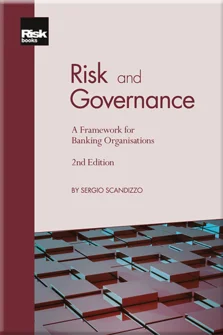Fair Value, Auditing and Internal Controls
Introduction: The Confluence of Risk and Governance
Corporate Governance, Information and Control
The Nature of Corporate Governance in Banking
Regulation and Governance
The Centrality of Risk Management
The Mission, Organisation and Governance of Risk Management
A Cartography of Banking Risks
Operations Risk in Extreme Market Conditions
Managing Legal Risk
Managing Reputation Risk
Drawing Boards: Motivations and Responsibilities in the Boardroom
Executive Compensation: Performance, Regulation and Ethics
Fair Value, Auditing and Internal Controls
Risk Management and the Role of Culture
The Board of Directors
Compensation
Auditing, Reporting and Disclosure
Accounting, along with its twin brother auditing, is one of the original governance tools that sheds light on what management is doing and the risks that the company is taking. However, both the techniques used in finance departments, and the abilities and incentives of the auditors, are far from straightforward and riddled with conflicts and inconsistencies. On the first point, this chapter will look at the issues of fair value and the procyclicality induced by “mark-to-market” valuation, and highlight the potential side-effects of accounting decisions. As auditors are one of the guardians of the reliability of accounting figures, we will then examine the issue of auditors’ independence compared to their ability to understand their clients’ business and the risks thereof. Finally, we will note that internal controls are also a key instrument of corporate governance, routinely taken into consideration within the auditors’ work. Failures in governance are often blamed on an inadequate control framework while effective controls facilitate the flow of information and transparency.
IS FAIR VALUE FAIR?
One of the criticisms of risk measurement techniques leading up to the 2008–09
Copyright Infopro Digital Limited. All rights reserved.
As outlined in our terms and conditions, https://www.infopro-digital.com/terms-and-conditions/subscriptions/ (point 2.4), printing is limited to a single copy.
If you would like to purchase additional rights please email info@risk.net
Copyright Infopro Digital Limited. All rights reserved.
You may share this content using our article tools. As outlined in our terms and conditions, https://www.infopro-digital.com/terms-and-conditions/subscriptions/ (clause 2.4), an Authorised User may only make one copy of the materials for their own personal use. You must also comply with the restrictions in clause 2.5.
If you would like to purchase additional rights please email info@risk.net











